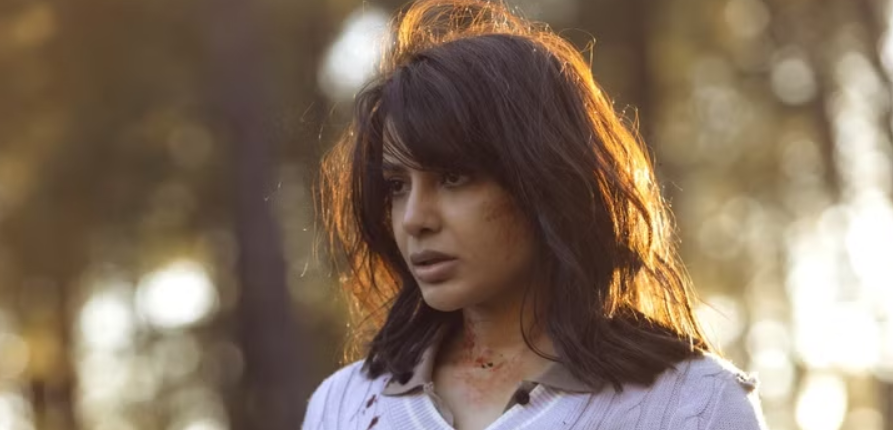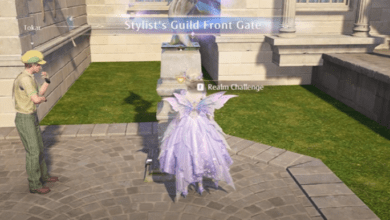Citadel: Honey Bunny Review – A Blend of Romance, Espionage and High-Stakes Action
Key Takeaways
- Samantha Ruth Prabhu and Varun Dhawan shine in their roles, bringing a smoldering chemistry to this Indian prequel of the Citadel series.
- Citadel: Honey Bunny weaves a tale of love and espionage set against the rich backdrop of the 1990s, focusing on family loyalty and dangerous spy missions.
- While packed with thrilling moments, the series falls short in cohesive storytelling and suspense, leaving viewers yearning for a tighter narrative.
Introduction to Citadel’s Expanding Universe
In the current age of cinematic universes and interconnected series, Prime Video’s Citadel universe aims to stand out. The Russo Brothers introduced the concept with Citadel in 2023, an “international event series” spanning multiple spin-offs around the world. Following Citadel: Diana, which expanded on the Spyverse, Citadel: Honey Bunny brings the action to India with an intimate look at the high-stakes world of espionage through the dynamic duo of Varun Dhawan and Samantha Ruth Prabhu.

While Citadel: Honey Bunny promises an engaging backstory within this universe, it takes a more character-focused approach, grounding the thrilling spy story with a deep exploration of love, loyalty, and betrayal. Let’s dive into this Indian adaptation and how it fares as both a prequel and a stand-alone thriller.
What Is ‘Citadel: Honey Bunny’ About?
Citadel: Honey Bunny tells a dual-timeline story of romance, espionage, and personal evolution. Set in 1992 and then jumping to the year 2000, it follows Honey (Samantha Ruth Prabhu), a struggling actress, and Bunny (Varun Dhawan), a stuntman-turned-spy. While Honey dreams of a glamorous acting career, Bunny has been recruited into a spy agency under the mentorship of Guru (Kay Kay Menon), a shadowy figure with complex motives. Honey joins the agency with reservations, determined to prove her worth, yet she becomes entangled in questioning the agency’s true agenda.

Fast-forwarding to 2000, Honey has distanced herself from her past life as a spy and now lives a quiet life with her daughter Nadia (Kashvi Majmundar). However, the resurfacing of a formidable threat throws her and Nadia back into danger, leading Honey to reunite with Bunny. Their once-intense connection reawakens as they confront unresolved feelings and face off against new enemies. Together with Bunny’s former allies, they must navigate their fraught relationship while working to protect their family from looming threats.
The Cast Brings Citadel’s Spyverse to Life
To create the unique blend of espionage and romance that Citadel: Honey Bunny demands, the series relies on the strong chemistry and nuanced performances of Samantha Ruth Prabhu and Varun Dhawan. Their relationship, laden with both passion and angst, evolves over time, moving from affectionate camaraderie to estrangement and then a reluctant alliance. Samantha’s portrayal of Honey captivates, balancing the character’s strength and vulnerability, while Dhawan’s Bunny complements her well as a man caught between loyalty and love.

The supporting cast, including Kay Kay Menon as the manipulative Guru, deepens the story’s complexity. His character is a continuous thorn in the protagonists’ sides, symbolizing the agency’s morally ambiguous nature. Young Nadia, portrayed by Kashvi Majmundar, adds warmth to the series, and her moments with Samantha add emotional depth. Other characters like Chacko and Ludo maintain a camaraderie with Bunny that enriches the backstory, though not all secondary characters are fully fleshed out.
Despite strong performances, certain characters like Simran’s Zooni fall short in development. As a promising antagonist, her limited screen time and characterization make her a missed opportunity for adding depth to the series’ tension.
A Tale of Family Loyalty and Espionage Intrigue
In Citadel: Honey Bunny, the stakes are less about saving the world and more about personal survival and protecting loved ones. This grounded approach emphasizes themes of loyalty and family, with Bunny’s and Honey’s willingness to put themselves in harm’s way for each other and their daughter driving the plot. Bunny feels indebted to his mentor Guru, seeing him as a father figure, while Honey’s loyalty to Bunny and Nadia clashes with her doubts about the agency’s true intentions.

This approach contrasts with other Citadel installments, which focus on global threats. Here, the smaller-scale but high-intensity dangers the characters face reveal the characters’ vulnerabilities, making the show feel more emotionally charged and relatable. Citadel: Honey Bunny is as much a family drama as it is a spy thriller, providing a different angle to the spyverse.
Action and Technical Execution
Under the skilled direction of Raj & DK, the series manages to deliver gripping action sequences that keep viewers on the edge of their seats. From high-stakes hand-to-hand combat to suspenseful chases, the series’ action scenes especially the one-take stunts are a visual treat. Cinematographer Johan Heurlin Aidt contributes with immersive shots that capture the raw intensity of each scene, amplifying the viewer’s engagement.

However, the series falters in pacing and plot coherence. Raj & DK’s writing, along with contributions from Sita R. Menon and Sumit Arora, lacks the razor-sharp edge expected of an espionage drama. The dialogue occasionally misses the mark, and the rapid shifts between 1992 and 2000 can be disorienting. This disrupts the flow, causing parts of the narrative to feel fragmented and slightly drawn out.
The series is further limited by its cliffhanger ending, a device that leaves viewers yearning for a second season without the certainty of resolution. While an open-ended finale is often acceptable in a serialized show, the absence of confirmed follow-up leaves some loose threads unsatisfactorily dangling.

Pros and Cons of Citadel: Honey Bunny
Pros:
- Electrifying Chemistry – Samantha and Varun Dhawan share a palpable on-screen presence, delivering a layered and passionate portrayal of two spies entangled in love and duty.
- High-Intensity Action – The single-take sequences and carefully choreographed fight scenes create a thrilling viewing experience.
- A Strong Villain – Kay Kay Menon brings a mix of intimidation and intrigue to his role, heightening the series’ suspense.
Cons:
- Pacing and Coherence – The plot suffers from some unnecessary time shifts, disrupting engagement and clarity.
- Underdeveloped Characters – Characters like Simran’s Zooni, while important to the plot, lack sufficient development.
- Predictable Cliffhanger – The finale leaves the story unresolved, which may disappoint viewers hoping for a satisfying conclusion.
Verdict: Should You Watch Citadel: Honey Bunny?
In summary, Citadel: Honey Bunny is a solid addition to the Citadel universe, weaving an engaging prequel that combines espionage and character-driven drama. Samantha Ruth Prabhu and Varun Dhawan’s performances are highlights, lending authenticity to their characters’ journey from partnership to estrangement. However, the series falls short on tight storytelling and thrill factor, essential elements of any spy thriller. While fans of the Citadel franchise or of Samantha Ruth Prabhu will likely enjoy this installment, those looking for a sharply paced espionage drama may need to temper their expectations.
Citadel: Honey Bunny is currently streaming on Prime Video as of November 7, 2024.
FAQ
What makes Citadel: Honey Bunny different from other Citadel installments?
Citadel: Honey Bunny focuses on a smaller-scale, family-centered storyline, setting it apart from the global crises seen in other Citadel entries. It explores themes of loyalty and love through the lives of two spies trying to protect their family.
Is Citadel: Honey Bunny suitable for viewers unfamiliar with the Citadel universe?
Yes. While some references to the larger Citadel universe appear, Citadel: Honey Bunny stands on its own, offering an engaging spy story rooted in Indian culture and a universal tale of family loyalty.
Will there be a second season of Citadel: Honey Bunny?
As of now, there’s no official confirmation of a second season, although the cliffhanger ending suggests the creators might have one planned. Fans may need to stay tuned for future announcements from Prime Video.
Is Citadel: Honey Bunny suitable for family viewing?
Given the intense action scenes, mature themes, and violence, Citadel: Honey Bunny is best suited for mature audiences.





